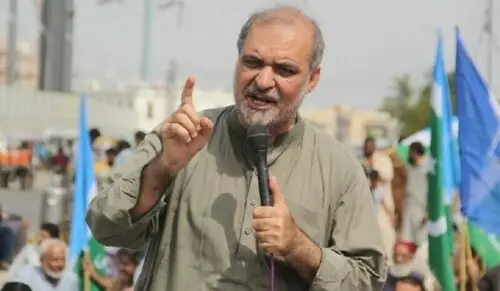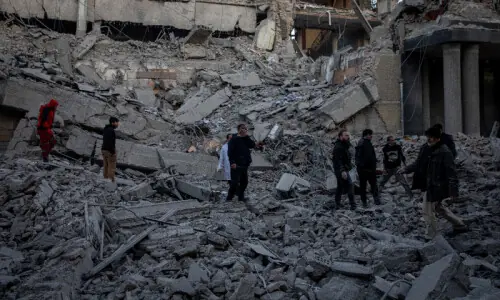AT midpoint, the journey of the Sustainable Development Goals is neither smooth nor even. Despite making progress in some areas, implementation has been slow and erratic. The SDG Progress Report of 2023 reveals that only 12 per cent of the SDGs are on track, including targets relating to the environment.
Adopted by the UN General Assembly in 2015, the 2030 Agenda for Sustainable Development outlines a blueprint for the world’s socioeconomic development. Its 17 SDGs provide a roadmap with timebound targets in areas ranging from poverty eradication, health, education, housing to industry, jobs, climate change and biodiversity loss.
Consensual outcome of a lengthy multilateral process, the SDGs carry the political commitment of all countries and have been internalised into national development plans and strategies. Regional priorities were also aligned with the SDGs.
Each year, countries voluntarily share their national reviews of SDG implementation at the High-Level Political Forum. Since 2016, almost all countries have shared their Voluntary National Reviews listing achievements and marking challenges. Many, including Pakistan, have done it twice. This year another 40 VNRs were shared at the HLPF, bringing the total number to 331 so far.
Will we get the SDGs by 2030?
In addition, this year the EU presented its first joint review. Sharing similar collective reviews by other regional and economic entities at the UN will be helpful in enhancing multilateral collaboration by providing a broader picture of the opportunities and challenges on the path to sustainable development.
Though at midpoint in terms of their timeline, the SDGs are way behind when it comes to implementation and realisation. The worsening environmental crisis is pushing the planet deeper into uncertainty. Food security, health, education and peaceful societies are endangered. The rising number of environmental disasters, coupled with the growing burden of debt in the global south, is hindering progress towards achieving the SDGs.
Multiple other factors also contribute to this perilous situation. The impacts of the Covid-19 pandemic, high inflation and slow economic growth are exacting a heavy toll on economies. For the global south, unsustainable debt is compounded by the difficulty of navigating the complicated processes of international finance.
According to UN estimates, “as of November 2022, 37 out of 69 of the world’s poorest countries were either at high risk or already in debt distress, while one in four middle-income countries, which host the majority of the extreme poor, were at high risk of fiscal crisis”.
As a result, millions of people are at risk of remaining trapped in poverty. If current trends are not reversed, by 2030, 575 million people will still live in extreme poverty and 670m will suffer hunger.
In their reviews at the HLPF, developing countries have consistently identified the inadequacy of financial resources as one of the obstacles curtailing their ability to invest in sustainable development, climate action and recovery from the pandemic.
The UN is working with governments to find ways to expedite the implementation of the SDGs before the world runs out of time.
To ease the debt burden on poor states, and to accelerate progress towards the SDGs, the UN Secretary- Secretary-General António Guterres’ SDG Stimulus announced earlier this year calls for urgent actions: to convert short-term, high interest loans to long-term, low interest debt; massively scale up financing for development, up to $500 billion per year, “aligning all financial flows with the SDGs”; expand contingency financing to countries in need; and disbursement of “concessional and non-concessional finance in a mutually reinforcing way”.
UNEP and other UN entities are supporting these efforts through initiatives and partnerships for impactful and urgent action. The UNEP Finance Initiative is helping financial institutions implement targets in the financing sector and mainstream sustainable finance. The initiative has established frameworks of principles for banking, insurance and investment sectors to realise the potential role of private finance in contributing to achieving the SDGs.
Will we get the SDGs by 2030? Will we succeed in putting the SDGs back on track quickly?
These questions will be deliberated at the SDG Summit this September in New York, where world leaders are expected to join hands in reviving the prospects for the SDGs. Dr Mahbub-al-Haq had noted that ‘development, if not engendered, is endangered’. The summit is an opportunity to engender sustainable development and, as the HLPF put it, “mark the beginning of a new phase of accelerated progress towards the SDGs”.
The writer is director of intergovernmental affairs, United Nations Environment Programme.
Published in Dawn, August 25th, 2023





























